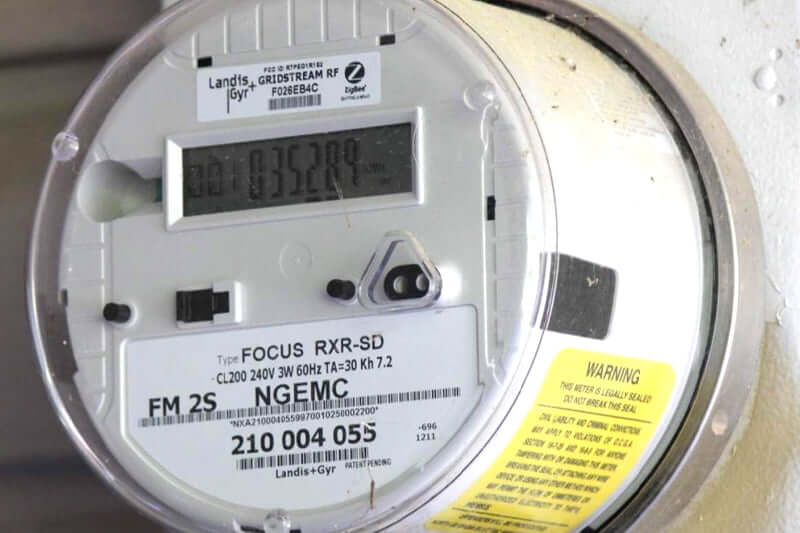The Aussie government is hard at work coming up with different plans to persuade families Down Under to make the switch to solar power. Of these strategies, net metering, which is also referred to as feed-in tariffs, has proven to be the most successful method so far.
In a nutshell, net metering refers to feeding excess power you produce back to the grid and getting paid for it. You will needd to draw on this again at night unless you install a battery, but it works out some much cheaper using net metering.
There is a different in the amount you earn during the day (off-peak) and when you draw at night (peak) but it still helps reduce your power bill by about 90%.

Table of Contents
ToggleNet metering vs feed-in tariff
Net metering and feed-in tariff are the same thing. It might be easier to understand by knowing that your power company buys power off you through the day (off-peak) and sells it back to you at night (peak).
Pro – This is a great deal because it means you don;t have to spenk 10,000 + on a battery system and can use the grid as a virtual battery.
Con – You are selling power at a cheaper rate than you are buying it. The power company will staill make a little money on you, but you will still reduce your power bill overall by 90% each month. You can turn a $500 bill into $50!
How does net metering work?
If your home or business is subscribed to net metering, you may notice that your meter runs backward depending on the production rate of your solar system. This way, you get a hedge for the grid electricity you use at night or whenever it’s not sunny.
Does net metering credits carry over from month to month?
In most cases, yes! However, this depends on your utility company. Credit carryover will depend on how often the utility buys back credits in their policy.
Regardless, this is a key factor to consider when looking to join any net-metering program. In months when you generate more electricity from your solar PV array than you consume from the grid, the credit carryover from month to month ensures that the generated power doesn’t go to waste.
Most homeowners take advantage of it during the long days of summer and bank the credits to utilize it during winter.
Advantages of Net metering
Reduced electricity bills
It goes without saying that net metering helps you lower your monthly power bills. While it doesn’t eliminate the bill completely, the credits you receive go a long way in slashing the bill making it much cheaper.
You’d, however, save even more if you utilized most or all of the electricity generated by your solar system.
Eliminates need for storage batteries
In a time when solar batteries are quite expensive, net metering becomes an appealing alternative. It’s much cheaper and has a relatively shorter ROI compared to storage batteries.
Helps stabilize the grid
By exporting your surplus electricity to the grid, net metering ensures that there’s enough electricity for everyone in your area. This takes a lot of the pressure from the grid meaning there’ll be fewer power outages and blackouts.
Your utility company will also spend less on repairs and grid updates and this could result in lower electricity prices.
Cheaper and require minimal maintenance
For most solar systems, the most expensive component is usually the battery or a generator. The solar panels by themselves are cheaper due to the solar rebates offered by both the federal and state governments.
Therefore, by applying for net-metering, you’ll spend much less since you won’t need solar batteries or a generator. The maintenance will also be minimal as your only concern will be the inverter.
Safer for the environment
Net metering encourages more homeowners to adopt solar energy which is green energy. This way, it helps reduce the carbon footprint associated with transporting most non-renewable energy sources.
In a time when the world is battling climate change, this is a fantastic solution. It also means that the national grid will be much safer and more environmentally friendly.
What is the difference between net and gross metering?
Most states in Australia offer two types of net metering i.e., gross solar metering and net solar metering.
Gross metering means that your solar PV array exports all the generated electricity back to the grid. Your gross meter will measure all the power generated and at the end of the month, you’ll receive compensation for the power sent to the grid.
Note that you’ll still have to pay the full amount in electric bills for the electricity you consume.
Net solar metering, on the other hand, allows the solar homeowners to receive credits for the surplus solar power that hasn’t been used in their household. The net meter runs backward depending on the amount of exported electricity.
This way, your monthly electric bill will be much lower compared to what you’ve consumed from the grid.

Does my state offer net metering?
Nearly every state in Australia allows net metering to its residents. However, the policies regarding how to feed power back to the grid remain to be different.
The net metering program is offered in Western Australia, New South Wales, Queensland, Australian Capital Territory, South Australia, Northern Territory, Tasmania, and Victoria.
However, in all these states, gross metering is not offered for new solar panels.
Another important thing to note is that depending on your state, you won’t get paid the same for the electricity you generate. Different utility companies will offer you different rates with some of the best rates at around 20 – 25 cents/kWh during peak hours.
You can find out more about the rates paid by utilities in your state on this page.
FAQ's
Yes! Net metering not only helps you reduce your monthly energy bills but also ensures the grid is more stable and more friendly to the environment. You also won’t need to invest in a solar battery which tends to be quite costly.
Despite all its benefits, net metering is only limited to homeowners who are connected to the grid. It’s also not the best way to maximize your solar systems since utility companies compensate you at a much lower rate compared to what they sell to you.
Under the net-metering program, all your unused electricity generated is exported back to the national grid and then credited to your account. You might notice that your meter runs backward in such circumstances.
Table of Contents
Toggle




